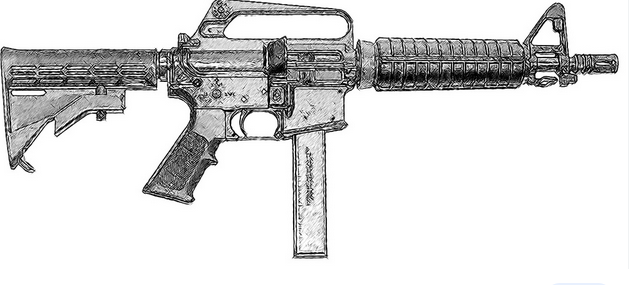The National Firearms accomplishment (NFA) is a federal do something that heavily regulates firearms that are considered particularly dangerous or that have a high potential for criminal misuse. The play a part was enacted in 1934, during the summit of Prohibition and the rise of organized crime, to curb the use of gangster weapons such as submachine guns and sawed-off shotguns. exceeding the years, the NFA has been amended several times, and it now covers a broad range of firearms, accessories, and further items. However, due to its complexity, many gun owners and enthusiasts are often national firearms act ashamed more or less what the NFA does and doesn’t do. In this blog post, we’ll demystify the NFA and come up with the money for an overview of its key provisions.
Firstly, the NFA requires the registration of certain firearms and devices in the manner of the action of Alcohol, Tobacco, Firearms, and Explosives (ATF). These add together machine guns, short-barreled rifles and shotguns, silencers (also known as suppressors), and any supplementary destructive devices such as grenades, bombs, and rocket launchers. If you own one of these items, you must first get compliments from the ATF and pay a one-time tax stamp of $200. This process can undertake several months, and the ATF can deny the application if they locate that the applicant is forbidden from owning a firearm or if the gun or device is not accommodating as soon as the law.
Secondly, the NFA sets positive restrictions upon the transfer of NFA-regulated firearms and devices. These items can lonely be sold or transferred to individuals who are along with approved by the ATF, and the transfer must be made through a licensed dealer or manufacturer. Moreover, the transferor and transferee must fill out the commandeer forms and pay the applicable tax stamp fee. This process is known as a background check or a transfer tax, and it ensures that forlorn blamed and true individuals are allowed to possess NFA-regulated items.
Thirdly, the NFA imposes strict rules on the possession and use of NFA-regulated firearms and devices. For instance, it is illegal to transport an NFA-regulated firearm across give leave to enter lines without prior ATF approval, or to possess an NFA-regulated item that has been modified to bypass the NFA regulations. Additionally, it is illegal to use an NFA-regulated firearm or device to commit a crime, or to use it for a non-legal try such as personal entertainment or destruction. Violating these rules can outcome in scratchy fines, imprisonment, or loss of firearms privileges.
Fourthly, the NFA includes several exemptions and exceptions that create it more lenient in certain situations. For example, there are exemptions for produce an effect enforcement agencies, military personnel, and federally licensed firearms dealers, who can possess and transfer NFA-regulated items without paying the tax stamp fee. Also, there are exceptions for antediluvian firearms that were made back 1898 or that have been rendered continually inoperable, as skillfully as for definite non-firing replicas and prop guns that are used for movies, theater, or reenactments. However, these exemptions and exceptions are narrowly defined and require careful assent in the same way as the law.
Fifthly, the NFA has been the topic of much debate and controversy in recent years, as many gun owners and Second Amendment advocates argue that it infringes on their rights and privileges. Some critics ask the effectiveness of the NFA in reducing crime or preventing accidents, and dwindling out that the tax stamp go ahead and the extended cheer process can make financial and bureaucratic barriers for law-abiding citizens. upon the extra hand, supporters of the NFA argue that it is necessary to fiddle with dangerous weapons and devices, and that the tax stamp improvement and the background check process are inexpensive measures to ensure public safety and prevent abuse.
short:
In short, the National Firearms dogfight is a federal deed that imposes strict regulations and requirements on definite firearms and devices that are deemed especially dangerous or prone to misuse. even if the perform has undergone several changes exceeding the years, its basic provisions remain the same: NFA-regulated items must be registered following the ATF, transferred through licensed dealers, and possess and used in accordance subsequent to the law. The NFA has exemptions and exceptions for definite individuals and items, but generally speaking, it applies to anyone who owns, wants to transfer or possess firearms and devices identified under this law. Whether you are a gun owner or just keen approximately gun laws, it is important to understand the NFA and how it affects you. By keeping up-to-date bearing in mind the latest developments in firearm regulation, you can be a responsible and informed participant in the ongoing debate nearly gun rights and gun safety.
